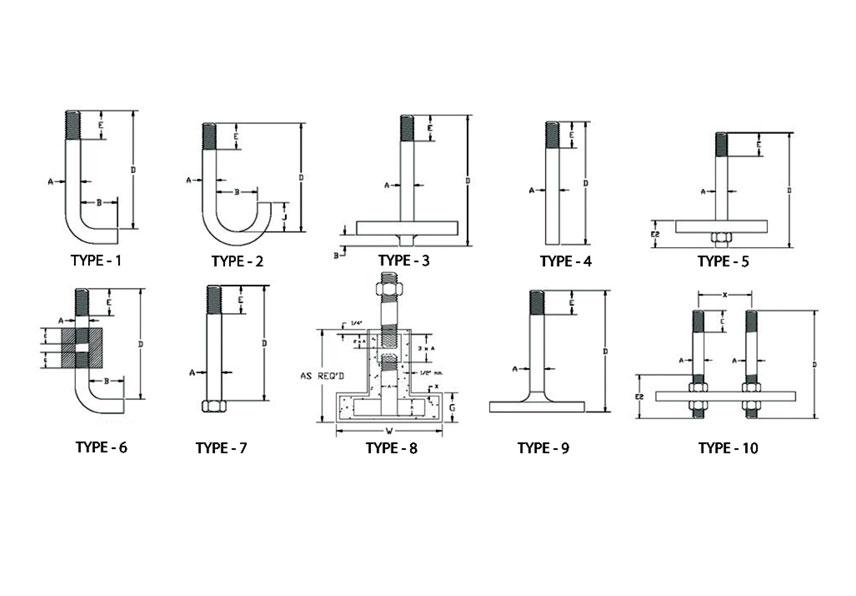 Philippines
Philippines
- 0966-200-2764
- 0917-850-0777
- 0945-711-2322
- (02)8461-7187
- [email protected]
- fb.com/7TMWinc
Anchor bolts are used to connect structural and non-structural elements to the concrete. The connection is made by an assembling of different components such as: anchor bolts (also named fasteners), steel plates , stiffners. Anchor bolts transfer different types of load: tension forces and shear forces.A connection between structural elements can be represented by steel column attacched to reinforced concrete foundation. Whereas, a common case of non-structural element attached to a structural one is represented by the connection between a facade system and a reinforced concrete wall.
A 90-degree Bend Anchor Bolt is commonly used in construction and engineering to anchor structures to concrete or masonry surfaces. The bolt is typically made of steel and comes in various sizes and shapes to fit different project requirements.
With its 90-degree bend, the anchor bolt provides a secure and robust connection between the structure and the base material. During installation, the bolt is inserted into a pre-drilled hole, and the bend helps to hold it firmly in place. The threaded end of the bolt protrudes from the surface, allowing the object being fastened to be attached using a nut.
The 90-degree bend anchor bolt is known for its strength and stability, which is especially important in applications where the structure is subjected to heavy loads or stress. Additionally, the bolt is durable and corrosion-resistant, often treated with hot-dip galvanizing or other coatings to enhance its lifespan and resistance to harsh environments.
In summary, the 90-degree bend anchor bolt is a critical component in construction and engineering, providing a reliable and secure connection between structures and concrete or masonry surfaces. Its unique design, strength, and corrosion resistance make it a suitable choice for a wide range of applications and environments.
A 90-degree bend anchor bolt is designed to provide a strong and stable connection between a structure and a concrete or masonry surface. Its properties can vary based on the specific material, size, and shape used. However, in general, it possesses a few characteristics:
Strength: The bolt is specifically designed to withstand heavy loads and stress, making it an ideal fastener in construction and engineering projects.
Stability: Once the bolt is inserted into a pre-drilled hole, the 90-degree bend helps to hold it firmly in place, ensuring a secure connection.
Durability: High-quality materials are used to manufacture anchor bolts, ensuring they are durable and resistant to corrosion. They are often treated with various coatings, such as hot-dip galvanizing, to extend their lifespan and improve their durability.
Versatility: Anchor bolts come in different sizes and shapes, making them suitable for various construction and engineering applications.
Corrosion resistance: Anchor bolts can be treated with coatings that enhance their ability to withstand harsh environments and prevent rust and corrosion.
Overall, the properties of a 90-degree bend anchor bolt make it a valuable and reliable fastener in construction and engineering projects, ensuring a strong and durable connection between the structure and the base material.